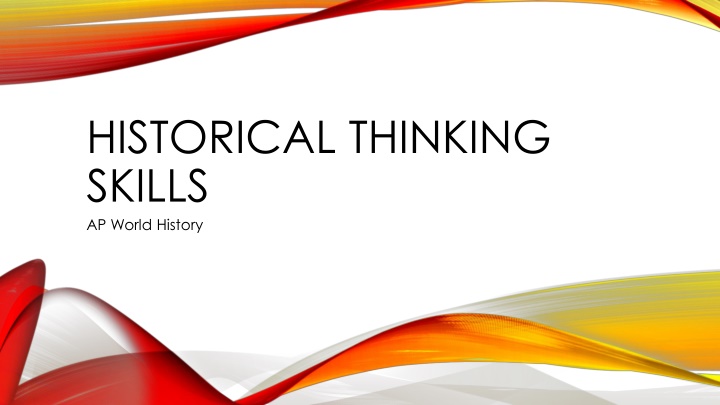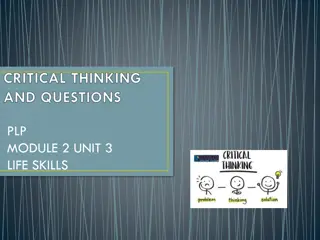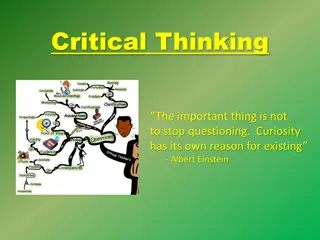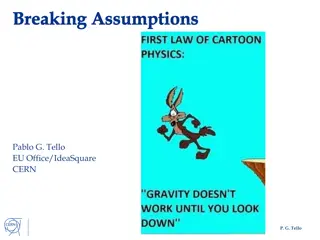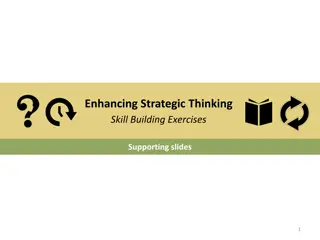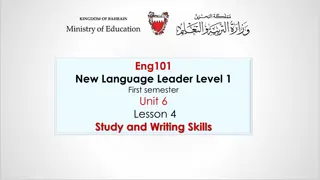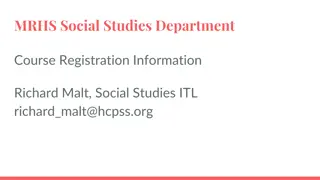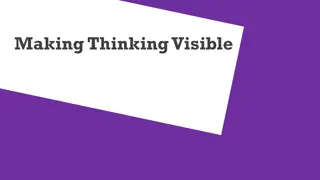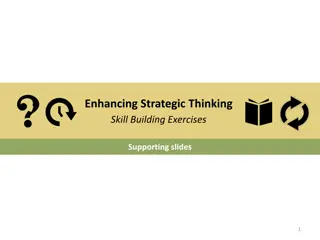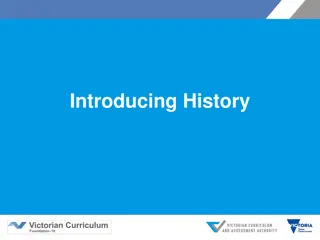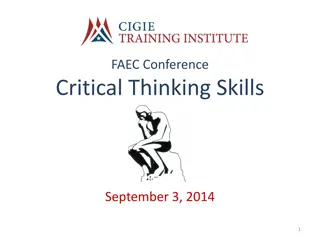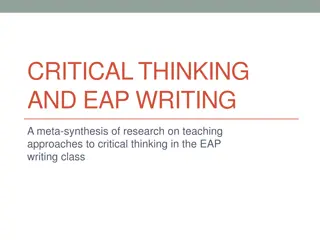Developing Historical Thinking Skills in AP World History
AP History classes aim to cultivate apprentice historians by fostering historical thinking skills (HTS). These skills include Chronological Reasoning, Comparison and Contextualization, Crafting Historical Arguments, and Historical Interpretation. Each skill set equips students with the ability to analyze causation, continuity and change over time, and periodization. Through these skills, students learn to examine events within historical contexts and draw meaningful connections across time periods.
Download Presentation

Please find below an Image/Link to download the presentation.
The content on the website is provided AS IS for your information and personal use only. It may not be sold, licensed, or shared on other websites without obtaining consent from the author.If you encounter any issues during the download, it is possible that the publisher has removed the file from their server.
You are allowed to download the files provided on this website for personal or commercial use, subject to the condition that they are used lawfully. All files are the property of their respective owners.
The content on the website is provided AS IS for your information and personal use only. It may not be sold, licensed, or shared on other websites without obtaining consent from the author.
E N D
Presentation Transcript
HISTORICAL THINKING SKILLS AP World History
AP History classes encourage students to become apprentice historians To achieve this students must begin thinking like a historian There are 4 types of HTSs for APWH Chronological Reasoning Comparison and Contextualization Crafting Historical Arguments from Historical Evidence Historical Interpretation and Synthesis EVERY question on the AP Exam will require students to apply one or more HTS.
SKILL TYPE 1: CHRONOLOGICAL REASONING Three parts Historical Causation Patterns of Continuity and Change Over Time Periodization Think TIME LINES
HISTORICAL CAUSATION Identify, analyze, and evaluate the relationship between events and developments Explain short-term and long-term causes and short-term and long-term effects Analyze and evaluate the interaction of several causes and effects Is there a correlation between these events? Is this a coincidence? Think: How do events of the past impact things today? How will events today impact tomorrow?
PATTERNS OF CONTINUITY AND CHANGE OVER TIME Involves the ability to recognize, analyze, and evaluate the dynamics of history over periods of time Explain how historical patterns and trends over time relate to larger historical processes or themes
PERIODIZATION The ability to analyze and organize history into blocks of time Key dates to mark beginning and ending of a period of time Analyze different and/or competing models of periodization in history
SKILL TYPE 2: COMPARISON AND CONTEXTUALIZATION Involves the ability to compare and contrast historical events and connect them to particular circumstances 2 Sub-skills Comparison contextualization
COMPARISON The ability to describe, compare, contrast, and evaluate two or more historical events/developments The ability to identify, compare, contrast, and evaluate a given historical event/development form multiple perspectives
CONTEXTUALIZATION The ability to see how a specific event or development falls into the larger and broader developments on a global level The ability to explain and evaluate ways in which a phenomenon, event, or process connects to other similar historical phenomena across time and place.
SKILL TYPE 3: CRAFTING HISTORICAL ARGUMENTS FROM HISTORICAL EVIDENCE Two components Historical Argumentation Appropriate use of Relevant Historical Evidence
HISTORICAL ARGUMENTATION The ability to analyze commonly accepted historical arguments and explain how an argument has been constructed from historical evidence. The ability to construct convincing interpretations through analysis of disparate, relevant historical evidence. The ability to evaluate and synthesize conflicting historical evidence to construct persuasive historical arguments.
APPROPRIATE USE OF RELEVANT HISTORICAL EVIDENCE The ability to evaluate evidence obtained from diverse sources including: Written primary and secondary sources Art and illsustrations Artifacts Maps Statistical data The ability to analyze features of historical evidence such as audience, purpose, point of view (perspective), format, argument, limitations, and context relevant to the evidence considered. The ability to make supportable inferences and draw appropriate conclusions based on analysis and evaluation of historical evidence
SKILL TYPE 4: HISTORICAL INTERPRETATION AND SYNTHESIS Two components Interpretation Synthesis
INTERPRETATION The ability to describe, analyze, evaluate, and construct diverse interpretations of the past and to determine the context and points of view of primary and secondary sources, historical arguments, and divergent perspectives. The ability to understand how particular circumstances and context shape historian s interpretations of past events. The ability to understand that models of historical interpretation have changed over time.
SYNTHESIS The ability to apply all of the other HTS, as well as drawing from and fusing knowledge and methods from diverse sources in order to build new and persuasive understandings of the past. The ability to make connections to events crossing over time periods, disciplines, themes, and/or geography
